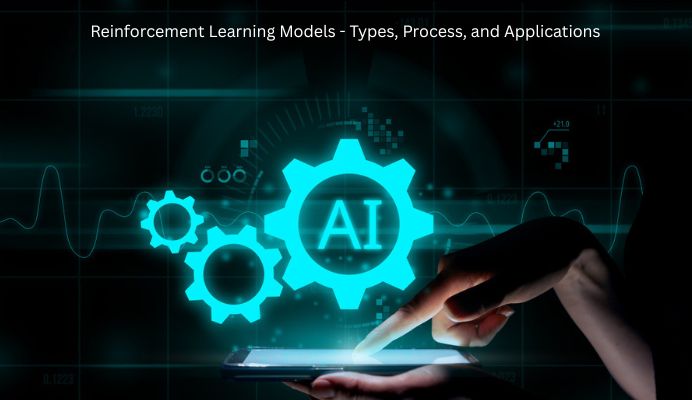
6 Top Agentic AI trends to follow in the AI Industry
Wondering what Agentic AI trends you shouldn’t miss?
Agentic AI is set to redefine the technological landscape in 2025, offering groundbreaking advancements that you simply cannot afford to overlook. As industries continue to evolve, the integration of agentic AI systems is emerging as a pivotal force driving innovation and efficiency.
This article dives into the key trends that will transform industries, from business operations to customer interactions, ensuring you stay ahead in the rapidly evolving AI landscape.
By exploring these trends, you’ll gain insights into how agentic AI is reshaping the future, enabling businesses to operate with unprecedented autonomy and intelligence.
What is Agentic AI?
Agentic AI refers to advanced artificial intelligence systems that can operate autonomously, make independent decisions, and take actions to achieve specific goals with minimal human intervention
Unlike traditional AI systems that operate within narrowly defined parameters and require constant human oversight, agentic AI is designed to function independently and adapt to changing environments.
6 Top Agentic AI Trends to Follow in the AI Industry
The 6 top agentic AI trends to follow include the following
1. Gains traction in business processes
Agentic AI is reshaping business operations by automating repetitive tasks and enabling more efficient workflows through robotic process automation. Businesses are leveraging these advanced AI systems to handle administrative tasks, content creation, and complex processes, thus allowing employees to focus on strategic initiatives and innovation.
The result is a significant boost in productivity and revenue growth, as these AI agents take over routine functions, freeing up human resources for more critical activities.
The integration of agentic AI into business processes is not limited to customer service. These AI systems are also revolutionizing sectors like finance, healthcare, and logistics by automating data analysis, predictive modeling, and resource allocation.
As businesses continue to adopt and implement agentic AI, they are witnessing a transformative impact on their operational efficiency and overall performance.
2. Autonomous decision-making
The ability of agentic AI to operate autonomously is a game-changer for businesses. These systems can act independently, continuously pursuing their objectives with minimal human intervention.
This shift towards independent decision-making is particularly evident in sectors like finance, where artificial intelligence systems manage investment portfolios by responding to market fluctuations in real time.
The lack of human intervention allows these AI systems to execute tasks continuously, improving operational availability and efficiency.

3. Improved customer interactions with AI-powered agents
AI-powered agents are transforming customer interactions by leveraging generative AI to understand customer intent and past interactions. These advanced systems are capable of analyzing vast amounts of data to provide personalized and empathetic responses, enhancing the overall customer experience.
AI agents, acting based on an understanding of customer emotions and needs, can manage multiple inquiries simultaneously without sacrificing service quality.
The incorporation of emotional intelligence in AI agents allows for relatable and meaningful interactions with customers. This is particularly valuable in customer service, where AI-powered agents automate tedious tasks and improve self-service options, leading to higher customer satisfaction.
4. Integration with the large language models
The integration of large language models (LLMs) with agentic AI has propelled the capabilities of these systems to new heights. LLMs provide agentic AI with the ability to comprehend and generate human-like text, interpret complex instructions, and engage in meaningful conversations.
LLMs enhance natural language understanding, enabling AI agents to interpret instructions accurately and engage in sophisticated dialogues.
This improved natural language processing capability is crucial for applications such as search engines, customer service, and software code generation, where understanding and generating human-like text is essential. The combination of agentic AI and generative AI models has led to more effective and efficient autonomous operations across various sectors.
5. Reinforcement learning optimises AI solutions
Reinforcement learning plays a critical role in optimizing AI automation solutions. These systems learn and adapt based on past actions, continuously improving their decision-making processes. By receiving rewards or penalties for actions taken, agentic AI systems can refine their strategies and enhance their effectiveness in achieving set goals.
This trial-and-error approach allows these AI systems to determine optimal actions by balancing the exploration of new strategies against the exploitation of known strategies.
The use of reinforcement learning algorithms such as Q-Learning and Deep Q-Networks enables agentic AI to optimize its performance through experiential learning.
This capability is particularly valuable in complex problem-solving scenarios where the AI system must navigate dynamic environments and make decisions that maximize long-term rewards.
6. Real-time data analysis and decision making
Agentic AI systems excel in managing real-time data analysis and decision-making, autonomously adapting to changing conditions. These AI agents can reevaluate their decisions based on feedback from their environment, ensuring optimal outcomes in dynamic scenarios.
By implementing agentic ai and analyzing extensive customer data, agentic ai operates to provide highly tailored service experiences, proactively engaging customers with personalized offers and relevant support. This is where agentic ai work plays a crucial role in enhancing customer interactions.
Effective data integration allows AI agents to process vast amounts of data efficiently, enabling businesses to make informed decisions quickly and accurately.
A survey indicates that 51% of organizations are exploring the use of AI agents, showcasing a significant interest in this technology. Moreover, 50% of business executives plan to implement AI agents this year, and 82% expect to adopt them within three years.
Organizations are increasingly focusing on integrating AI tools and redefining existing processes for greater value creation. Promoting a data-driven culture and improving data literacy among employees is essential for maximizing the potential of AI tools. Improving data quality management is also crucial, as poor data quality can lead to significant losses for organizations.
As we move forward, the widespread adoption of agentic AI is set to transform the business landscape, offering productivity gains and operational efficiencies. By embracing these advancements and prioritizing AI governance, businesses can harness the full potential of agentic AI and stay ahead in the competitive landscape.






